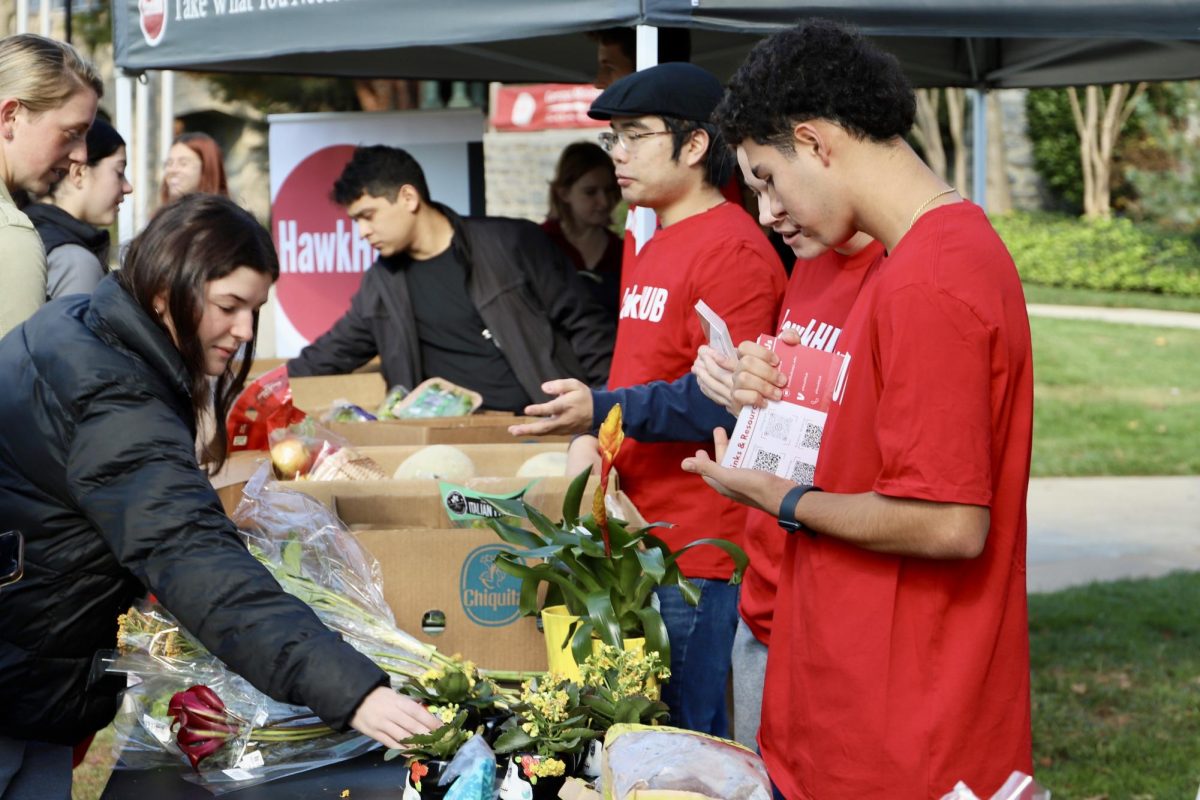St. Joe’s has received a Pennsylvania Hunger-Free Campus + designation, acknowledging the university’s work to address hunger and food insecurity among its students.
Nearly 23% of undergraduate students experience low or very low food security, according to a 2019-2020 report from the U.S. Department of Education’s National Center for Education Statistics. The Pennsylvania Hunger-Free Campus Initiative seeks to encourage Pennsylvania colleges and universities to combat food insecurity on their campuses and acknowledge those already doing so.
The designation, awarded by Pennsylvania Governor Josh Shapiro’s administration, officially recognizes the work of initiatives like HawkHUB, St. Joe’s food and basic needs resource center, which first opened in September 2020.
Kim Allen-Stuck, Ph.D., assistant vice president of student success and educational support, helped lead the efforts to apply for the designation, which the university learned it had received Jan. 29. She said she was surprised the university didn’t already have it, since groups at St. Joe’s have been committed to addressing hunger and basic needs for years.
“It’s nice to be included on the list. I’m happy about that,” Allen-Stuck said. “It also gives us an opportunity to apply for more external grants to support the work that we were not eligible [for] before we had the designation.”
Madalina Veres, Ph.D., executive director of corporate and foundation relations, who was also involved with the designation application process, said in addition to the new funding opportunities, the recognition is encouraging for those who have been addressing basic needs insecurity on campus.
“It’s an additional validation for all the work that HawkHUB and other folks on campus have been doing already,” Veres said. “It’s not, ‘Okay, now that we’ve got the designation we can do the work.’ It’s more like, ‘Yay. The state recognizes that St. Joe’s is doing a great effort in this space, and we should acknowledge this.’”
A university must meet four requirements to receive the PA Hunger-Free Campus designation: a method of connecting students to food options, such as an on-campus food pantry; a plan to “increase awareness of the Supplemental Nutritional Assistance Program (SNAP) eligibility rules for students”; a task force that focuses on addressing basic needs on campus; and a process for collecting and sharing data on student hunger.
HawkHUB’s recent Meal Swipe Exchange program (which allows students to donate their extra meal swipes to students in need) helped boost the university to a PA Hunger-Free Campus + designation, Allen-Stuck said.
The task force requirement also prompted the creation of the Supporting Students In Need Task Force, which unites students and faculty leaders from a multitude of basic needs initiatives at St. Joe’s, including the Meal Swipe Exchange, HawkHUB’s Operation Tampon and Career Closet, textbook scholarships and more, Allen-Stuck said.
These initiatives are crucial to getting students the help they need, especially because it can feel difficult to ask for help, said Aidan Murray ’26, co-president of HawkHUB alongside Liv Fisher ’25.
“There’s certainly a stigma against asking for help or admitting that there’s a need that needs to be addressed,” Murray said. “Organizations like HawkHUB around the United States and HawkHUB itself can address this by normalizing there being spaces on campus where people can come and look after themselves.”
Murray said the designation will help HawkHUB better serve students across all three St. Joe’s campuses, including a new HawkHUB location in Lancaster, opening Feb. 5.
For Allen-Stuck, HawkHUB and basic needs support at St. Joe’s have come far, starting with nothing but “goodwill and good people” and growing to earn this designation.
“We were meant to be a part of this,” Allen-Stuck said.
Liv Bielawski ’27 contributed to this story.





















































